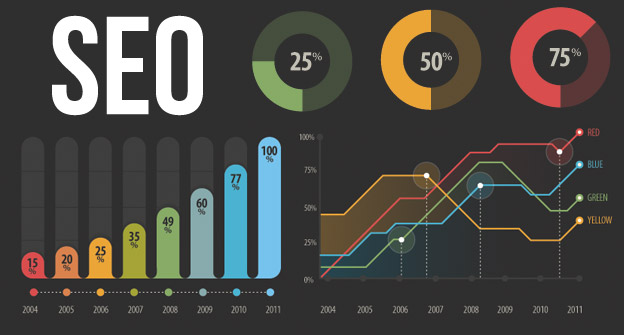How to Use Analytics to Boost SEO Strategy

In the digital age, data is the new gold. Just as a miner sifts through dirt to find precious nuggets, SEO professionals must sift through analytics to uncover insights that can boost their SEO strategy. But where do you start? How do you transform raw data into actionable steps that drive organic traffic and improve SEO performance? Let's dive in and explore how to use analytics to boost your SEO strategy.
Understanding the Power of Data Analysis
Data analysis is like having a roadmap in a vast, unexplored territory. It guides you, showing you where to go and what to avoid. In the context of SEO, data analysis helps you understand user behavior, identify trends, and optimize your strategies for better results.
The Importance of SEO Performance Metrics
SEO performance metrics are the compass points on your roadmap. They tell you how well your strategies are working and where you need to make adjustments. Key metrics to track include:
- Organic Traffic: How many visitors are coming to your site from search engines?
- Bounce Rate: How many visitors leave your site after viewing only one page?
- Conversion Rate: How many visitors take the desired action, such as making a purchase or signing up for a newsletter?
- Average Session Duration: How long do visitors spend on your site?
Leveraging Analytics to Enhance SEO Strategy
Now that you understand the importance of data analysis, let's look at how you can use analytics to enhance your SEO strategy.
Analyzing User Behavior
Understanding user behavior is crucial for optimizing your SEO strategy. Tools like Google Analytics can provide insights into how users interact with your site. For example, you can see which pages are most popular, where users are dropping off, and how they navigate through your site.

Identifying High-Performing Pages
Identifying high-performing pages can help you understand what's working and what's not. Look for pages with high organic traffic, low bounce rates, and long session durations. These pages are likely providing value to your users and can serve as models for future content.
Optimizing Keywords
Keyword optimization is a cornerstone of any SEO strategy. Analytics can help you identify which keywords are driving the most traffic to your site. Use this information to optimize your content and improve your search engine rankings.
Practical Steps to Improve SEO Performance
Let's get practical. Here are some steps you can take to improve your SEO performance using analytics.
Conduct a Thorough Site Audit
A site audit is like giving your website a health checkup. It helps you identify technical issues, such as broken links, slow loading times, and missing meta tags, that could be hurting your SEO performance. Tools like SEMrush and Ahrefs can help you conduct a thorough site audit.
Use Heatmaps to Understand User Interaction
Heatmaps provide a visual representation of how users interact with your site. They can show you where users are clicking, scrolling, and spending the most time. This information can help you optimize your site's layout and design to improve user experience and SEO performance.
A/B Testing for Continuous Improvement
A/B testing is a powerful tool for continuous improvement. It allows you to test different versions of your site to see which performs better. For example, you might test different headlines, images, or calls to action to see which drives more engagement and conversions.
The Role of Analytics in Content Strategy
Analytics can also play a crucial role in your content strategy. By analyzing data, you can identify trends, understand user preferences, and create content that resonates with your audience.
Creating Data-Driven Content
Data-driven content is content that is informed by analytics. For example, you might use analytics to identify popular topics, understand user pain points, and create content that addresses these issues. This approach can help you create content that is more relevant and valuable to your audience.
Measuring Content Performance
Measuring content performance is essential for understanding what's working and what's not. Use analytics to track metrics like page views, time on page, and social shares. This information can help you refine your content strategy and create more effective content.

Conclusion
Using analytics to boost your SEO strategy is like having a secret weapon in your digital marketing arsenal. It allows you to make data-driven decisions, optimize your strategies, and achieve better results. By understanding user behavior, identifying high-performing pages, and optimizing keywords, you can improve your SEO performance and drive more organic traffic to your site.
So, are you ready to harness the power of analytics to boost your SEO strategy? The journey may seem daunting, but with the right tools and strategies, you can transform data into actionable insights that drive real results.
FAQs
What are the key metrics to track for SEO performance?
- Key metrics to track include organic traffic, bounce rate, conversion rate, and average session duration.
How can I identify high-performing pages on my site?
- Use analytics tools like Google Analytics to identify pages with high organic traffic, low bounce rates, and long session durations.
What is the role of A/B testing in SEO?
- A/B testing allows you to test different versions of your site to see which performs better, helping you continuously improve your SEO performance.
How can analytics help with keyword optimization?
- Analytics can help you identify which keywords are driving the most traffic to your site, allowing you to optimize your content and improve your search engine rankings.
What is data-driven content and why is it important?
- Data-driven content is content that is informed by analytics. It is important because it allows you to create content that is more relevant and valuable to your audience, improving engagement and SEO performance.
Belum ada Komentar untuk "How to Use Analytics to Boost SEO Strategy"
Posting Komentar